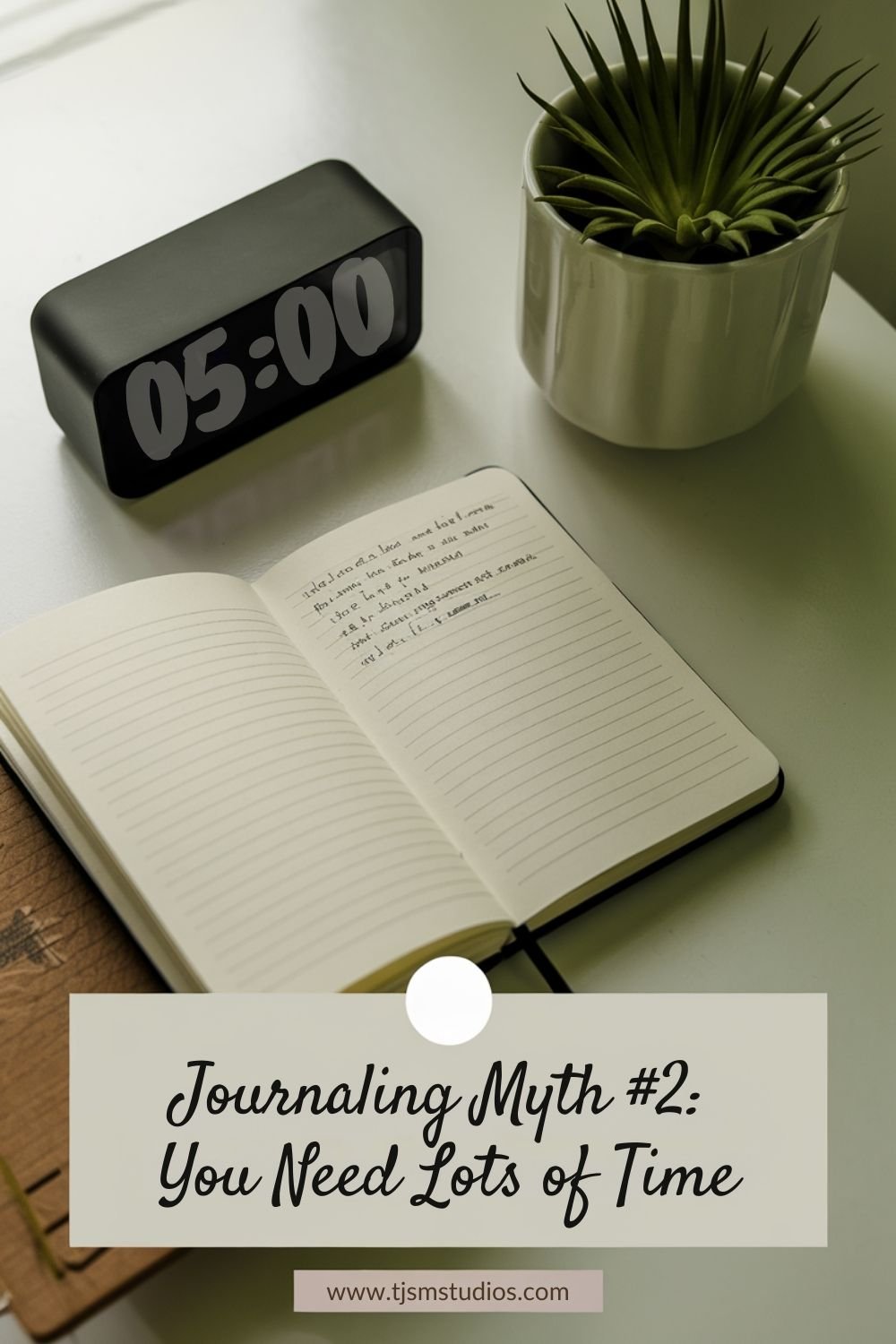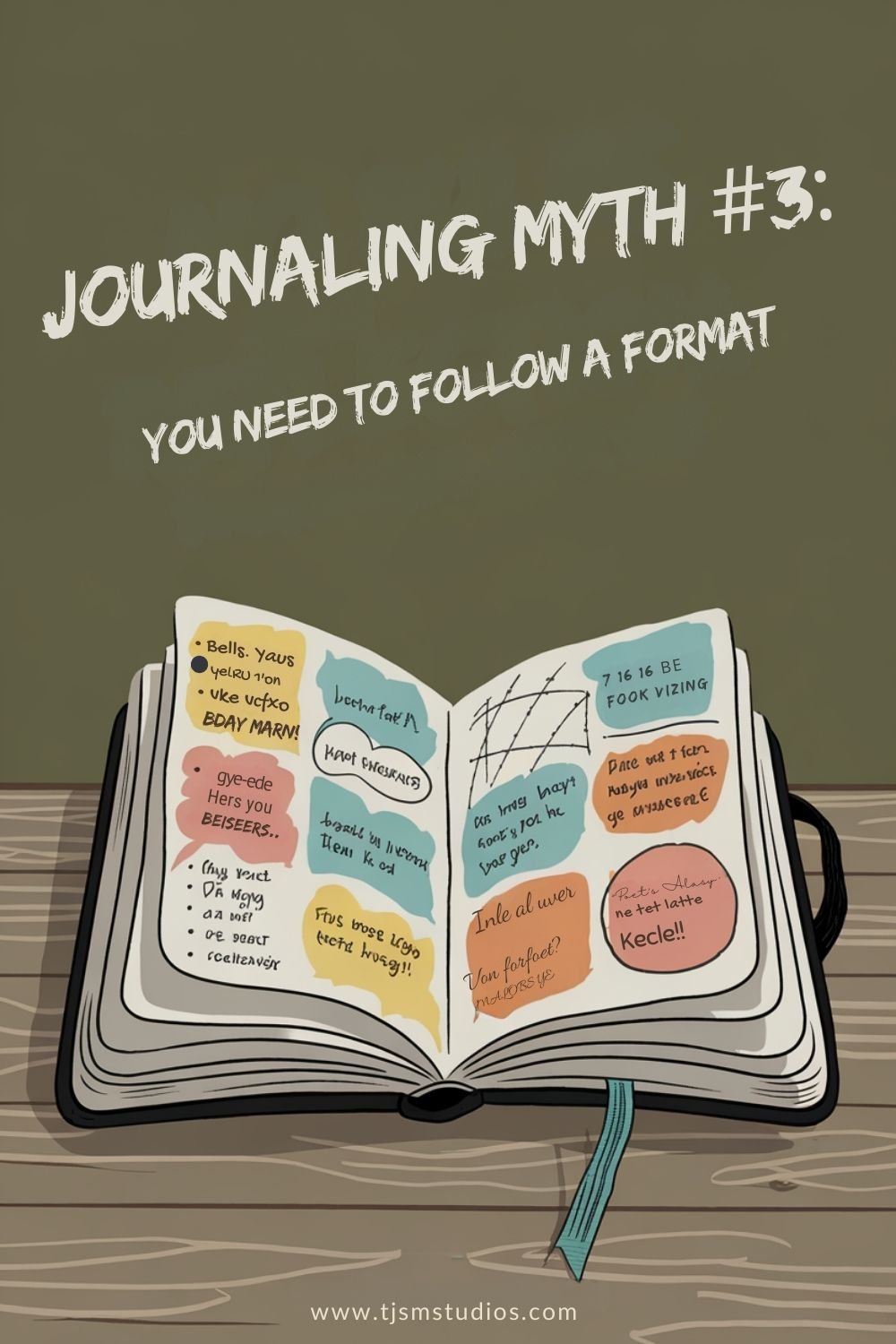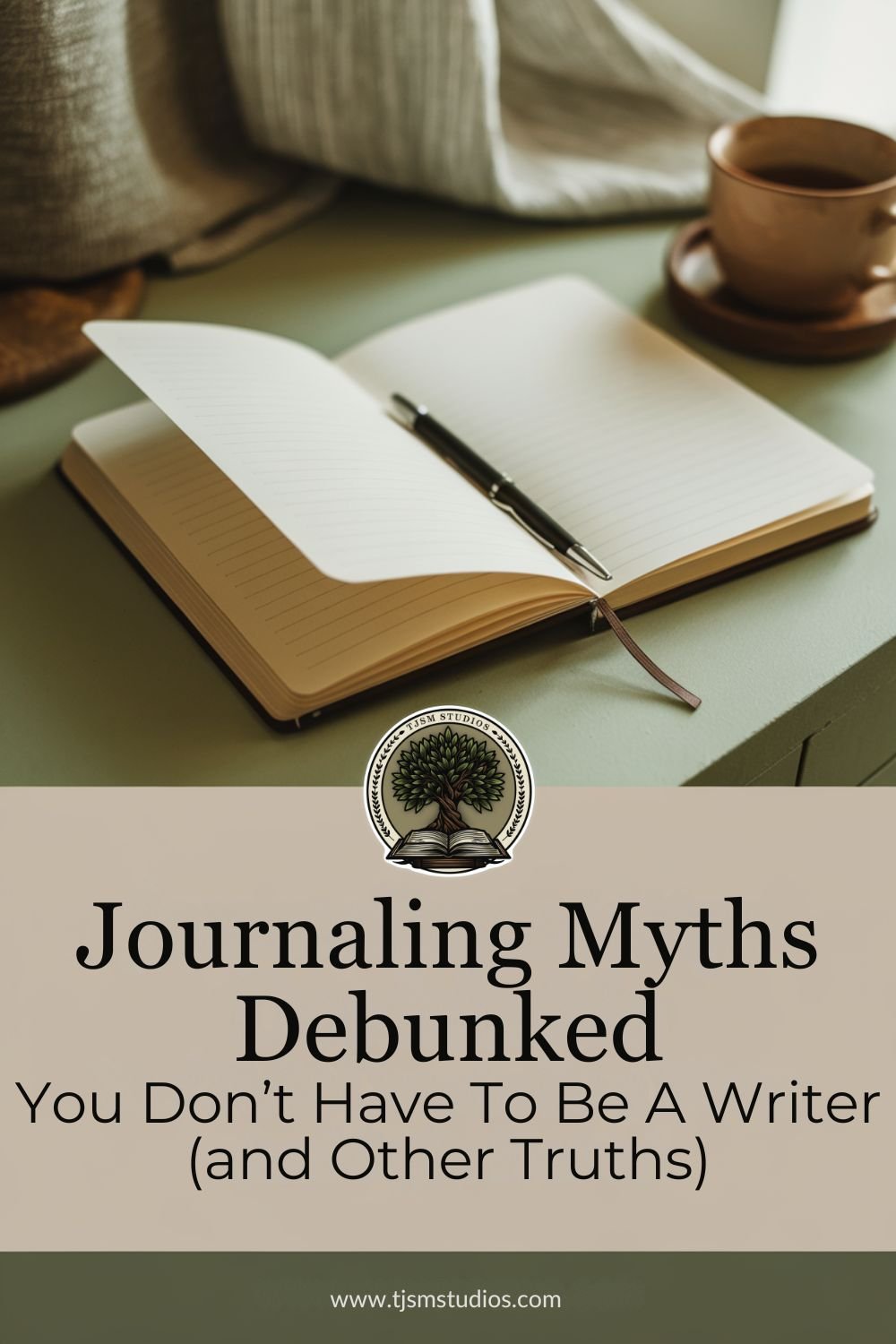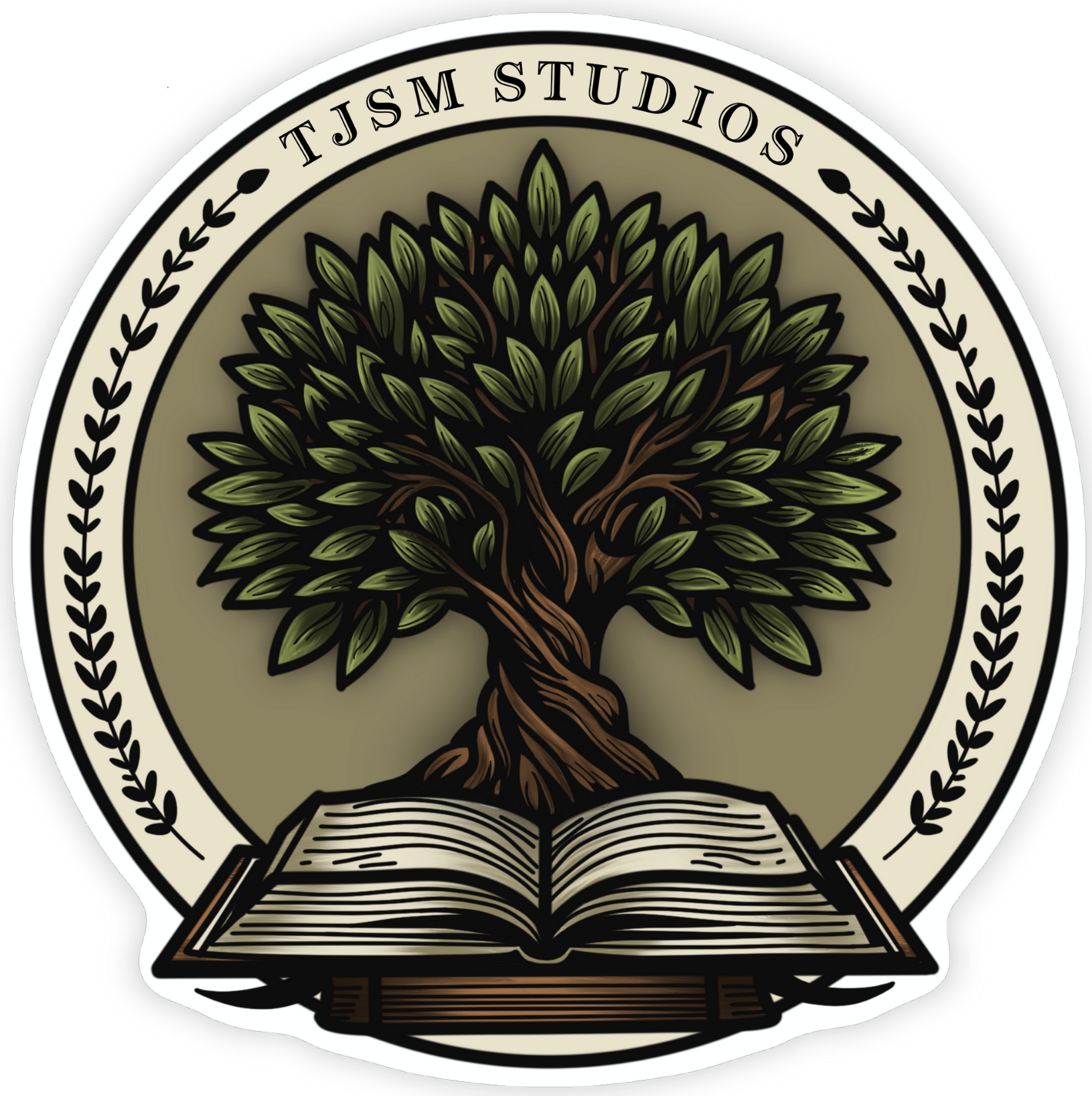This post may contain affiliate links, meaning I may earn a small commission at no extra cost to you.

Many people believe journaling is only for those with a talent for writing, leading them to avoid this powerful practice. The truth? Journaling is for everyone, regardless of skill level. This post will debunk common myths about journaling and show you how to incorporate it into your life without the pressure of being a polished writer.
Journaling Is for Everyone

Journaling is one of the most accessible personal growth tools available. You don’t need to be a writer, follow a specific format, or create beautifully structured sentences. A journal is your space—whether you write in bullet points, fragments, or long-form paragraphs. The goal isn’t to impress anyone but to capture your thoughts, emotions, and reflections in whatever way feels natural.
You Don’t Need to Be a Writer
Journaling isn’t about crafting perfect prose—it’s about self-expression. You might prefer a conversational style, stream-of-consciousness writing, or even doodles and lists. Your journal is a judgment-free zone where authenticity matters more than style. Embrace imperfection and allow your journal to reflect your real thoughts and experiences.
Grammar and Spelling Don’t Matter
Many people hesitate to journal because they worry about grammar, spelling, or sentence structure. But journaling isn’t an essay for school—it’s a personal outlet. If you focus too much on correctness, you risk blocking the natural flow of your thoughts. Let your ideas take center stage, and write freely without self-editing.
Journaling Doesn’t Have to Take Hours

One of the biggest myths about journaling is that it requires a significant time commitment. In reality, even a few minutes a day can have a profound impact on your mental clarity and self-awareness.
Short Entries Are Powerful
A single sentence or a quick list of thoughts can be just as effective as a long journal entry. Short reflections reduce the pressure to “produce” content and instead encourage consistency. Jotting down a key moment from your day, a feeling, or a realization can be enough to spark meaningful self-discovery.
Consistency Over Perfection
Many people believe they must wait for the perfect mood, setting, or inspiration to journal effectively. But the real power of journaling comes from showing up regularly. Even if your entries feel insignificant at times, they create a valuable record of your thoughts and experiences over time. Prioritizing consistency will help you form a lasting, rewarding habit.
There’s No Right or Wrong Way to Journal

Some believe journaling must follow a structured format, but the truth is, there are no rules. You can tailor your journaling practice to fit your personality and lifestyle.
Structured vs. Free-Form Journaling
Some people thrive on structure, using prompts, templates, or guided formats like gratitude lists or bullet journaling. Others prefer a free-flowing approach, letting thoughts spill onto the page without restriction. There’s no superior method—experiment and find what works best for you.
Digital vs. Paper Journals
Both digital and paper journaling have their advantages. Digital journals offer convenience, searchability, and multimedia options like voice recordings or images. Paper journals, on the other hand, provide a tactile experience that many find more personal and grounding. You might choose one or use both, depending on your needs.
Journaling Can Improve Mental Well-Being
Beyond being a creative outlet, journaling has tangible benefits for mental health and self-awareness.
Stress Relief and Emotional Clarity
Writing down your thoughts can be incredibly therapeutic. Journaling helps you externalize worries, making them feel more manageable. It provides a safe space to process emotions, identify stressors, and gain perspective on challenging situations. Many people find that putting their feelings into words brings a sense of relief and clarity.
Boosting Self-Awareness and Growth
Journaling encourages self-reflection, helping you recognize patterns in your thoughts and behaviors. Over time, this practice deepens self-awareness and fosters personal growth. By regularly documenting your experiences, you create a roadmap for intentional living and personal evolution.
Final Thoughts
Journaling is not about perfect writing—it’s about self-expression and personal discovery. By letting go of myths that hold you back, you can embrace journaling in a way that feels natural and fulfilling. Whether you prefer long-form reflections, quick lists, or digital notes, your journal is yours to shape. The most important thing is to start and allow the process to evolve with you. Journaling isn’t about the words on the page—it’s about the clarity, insight, and peace it brings to your life.
Get Your Free Journaling Mythbuster Worksheet!
Ready to start journaling without the pressure of perfection? Download our free Journaling Mythbuster Worksheet to break through common misconceptions and start a practice that works for you.

